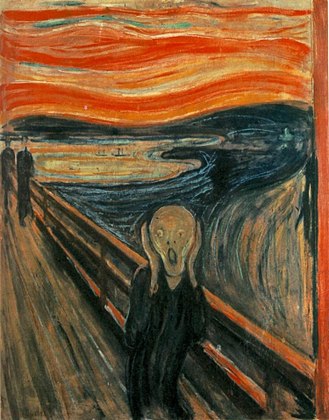 |
| wikipedia.com |
Probably because he forgot to do his taxes.
But all jokes aside, well for now at least. I would say what is on my mind most is just keeping up with my exams and homework. I am ready for a change of pace though. I am ready to leave for Spain.
I would say the most exciting thing about traveling abroad, from the perspective of someone who has only been to Mexico and Canada 🍁, is getting to enjoy the entire new scenery. I will have so many pictures to take and get to see an entire new set of buildings, streets, and cars. And, best of all I DON'T have to see the same city with the same set of roads and irritating traffic lights I always get stuck at for way too long. Like okay come on, every town has those lights where there are no cars going the other way, but then they stop you for what feels like hours, especially when you have somewhere you need to be. So, anyway, I will be enjoying a different place with different scenery and different things to keep me busy.
I am most excited about practicing my Spanish skills. I really hope that I can find a native speaker that likes running. Then, we can run together and I can practice Spanish with him or her while we run. That way, I would get to practice Spanish, and I would get to explore the city and surrounding area through running. If you have never been running in a place you have never been before, I suppose I ought to explain a little.
Firstly, running and hiking can be similar in this way. There are a variety of secret secluded often natural wonders that you cannot reach any other way but on foot. Running is just a bit faster than hiking, so you get all of the freedom which comes with hiking but faster so as to see more. The one downside of running is that you usually don't have your phone with you, so you don't necessarily get all the pictures of hiking; however, I would argue this is best. Some things are more powerful to experience with their associated temporary nature. A picture preserves something that is constantly changing, but if you are in that moment you get to see everything just as it is and will never be again. There is also a great power in holding a secret place with no evidence. To be able to share the beauty, you have to take the person you want to share with to that place to see for themselves.
That said, I am a huge fan of catching the absolute perfect moments:
I mean how often do you catch a sunset with the perfect amount of clouds that happens to align perfectly with the flag on the top of the union? So, I would say I love to find those perfect things that are just so perfect and powerful that they compel you to seek out that personal place and those special moments for yourself such as I don't know maybe the secret of the bell tower:
That's forged into one of the enormous bells by the way. And no, it's not an image from the internet. Instead I suggest you discover the secret yourself because I would never want to deprive you of that moment. So maybe don't be afraid to do a little poking around where you think you probably shouldn't be because you might just find out you're in luck and exactly where you are supposed to be. Although here's a hint to a schedule: Click then look for some times
So, I suppose in the end the answer to the question of "What's on my mind?" is really a question of what moment is it right now and what could I possibly be thinking about because as you may have noticed from what is above, just about everything is on my mind depending on what moment you catch me in.


